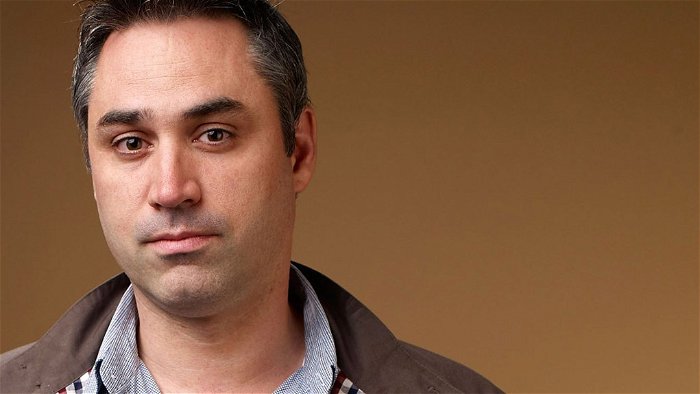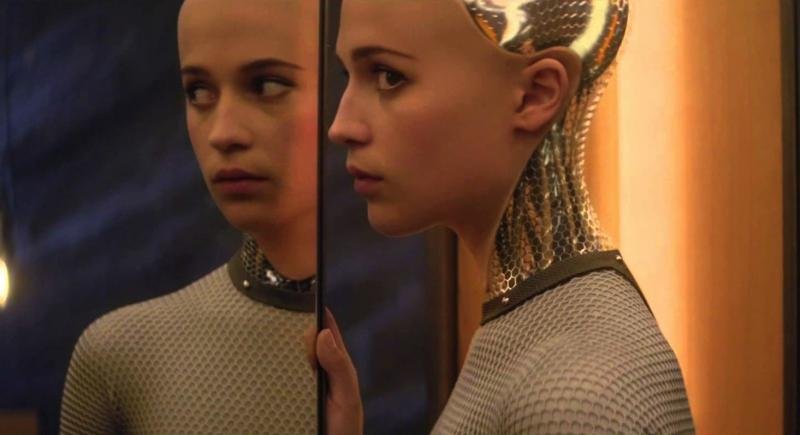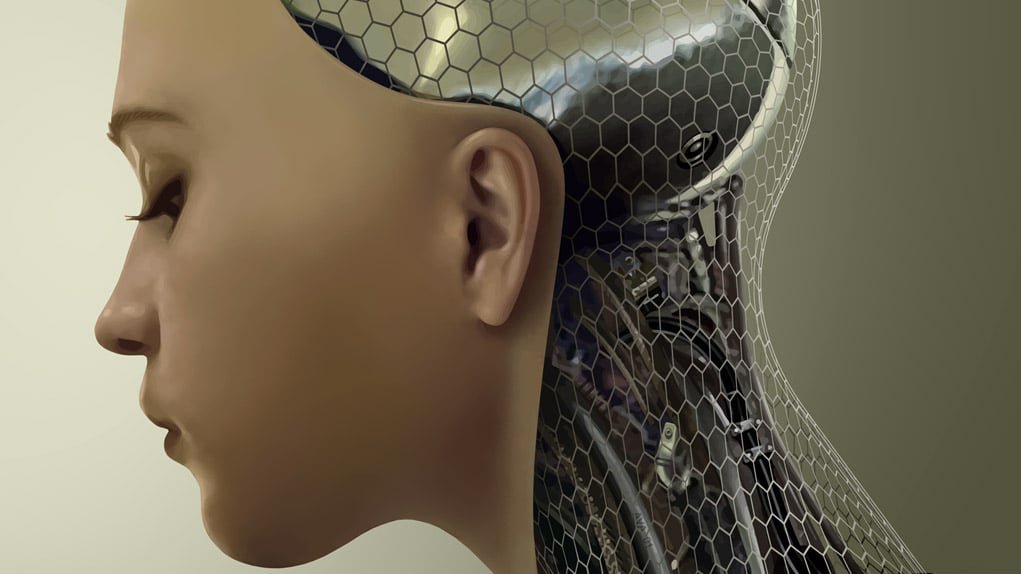This week Alex Garland’s directorial debut Ex Machina hits screens and it’s one of his finest cinematic outings to date. It’s a sci-fi parable about a lonely computer programmer (Domhnall Gleeson) who is hired to assist a search-engine creating genius (Oscar Isaac) test the success of his latest invention: artificial intelligence. His creation is Ava (Alicia Vikander), a remarkably articulate and emotional being with a transparent mechanical body. The only trouble is that it’s hard for Gleeson to tell if Isaac is manipulating him through these tests or if perhaps Ava is manipulating them all. Ex Machina is an intelligent, unsettling, and complicated bit of rip-roaring genre entertainment. Garland steps into his new directing role with ease and makes a mark that will hopefully be strong enough for him to stay in the director’s chair for many years to come. CGM recently got a chance to chat with Garland gearing up for Ex Machina’s release and picked his brain about his latest feature and long, successful career.

Comics Gaming Magazine: I got the impression that you’ve had an increasingly large amount of creative input in all of the films that you’ve written until now, so was Ex Machina a natural point to take over fully as director?
Alex Garland: Yeah, I suppose so to an extent. There was no need to get a director to be honest. There was no point. It’s a complicated issue for me because I feel like I have to push back against the perception that we create of directors, which is as godheads with films as their possessions. I’ve never once seen that to be the case. I believe it can exist with other people, but it’s not something that I’ve ever experienced. I find the whole director fetish a) inaccurate and b) kind of dull. I’ve spent too much time observing what cinematographers do and actors do and editors do and sound designers do to take it that seriously.
CGM: Fair enough. Probably made it easier to dive in if you’d worked with all of those people before.
AG: Yeah, I’d basically done the job before. It’s all very overstated. A film crew is a team of people. A lot of the people on this film I worked with many times and we know each other very well. Some of the people I’ve worked with for the last fifteen years. They’re making the film more than I am.
CGM: I got the impression that you sympathized with the artificial intelligence character in this film more than the humans—

AG: I’m totally allied with Ava.
CGM: It’s not a perspective that I’ve seen very often before and was an intriguing route to go. So I was curious if that was the starting point on this project for you?
AG: Yes. It was. Initially it was just reading up about AI and consciousness out of personal interest. But one of the things that happened was getting the sense that most people’s general reaction to the concept of artificial intelligence is anxiety. That didn’t make sense to me. I didn’t feel that way. Pretty much the opposite, I feel like the sooner the better. They might be much more reasonable than we are. And anyway, forget that, it would just be interesting. There’s obviously dangers and stuff, but whatever. So I framed it in my head as presenting AI not as this parallel rival lifeform that might overtake us and leave us behind, but much more like parents and children. There’s a parental act in creating a new consciousness. That’s what parents do. In that case, the things that alarm us about AI actually become the things that you desire. You want your child to outlive you. You want your child to have at least as good of a life. So what the film is trying to do is create a father/daughter dynamic in a strange way. There are these conversations where he says things like, “Go back to your room.” Or she turns to him and says, “What’s it like to create something that hates you.” It’s kind of like an adolescent relationship with a parent, where the subtext of the argument is, “What’s it like to make something that hates you.”
CGM: I was also curious about your relationship to Oscar Isaac’s character, who is a man whose tragedy or insanity—depending on your point of view—is a result of isolating himself entirely from the world to focus on creation. Is that something that you relate to as a writer?
AG: There’s parallels in as much that writing is very isolated and isolating. You sit in a room on your own and exist in an imaginary world where you lose track of reality quite quickly. So there’s something of that in Oscar’s character, but in an even more pronounced way. I thought of him more like Col. Kurtz, he’s spent too much time up river. And he’s spent too much time without the modifying influences of other people and the things that ground us.
Read our review of Ex Machina.




